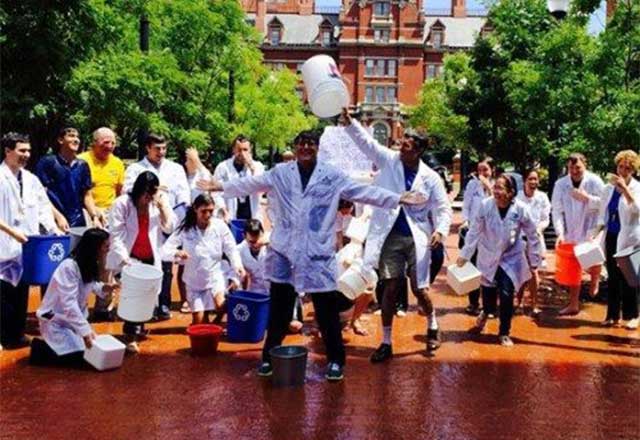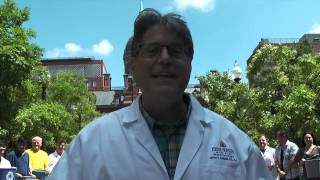
The BSi unites a cadre of talented Johns Hopkins researchers, neurologists and neuroscientists into a research core focused on neurodegenerative disorders including Alzheimer's disease, amyotrophic lateral sclerosis (ALS), Huntington's disease and Parkinson's disease. The mission of this diverse group is to understand the fundamental causes of these diseases and ultimately to develop biomarkers and effective interventions to mitigate and cure them.
Millions of Americans suffer with Alzheimer disease and related dementias in the United States at any given time, and there is no known cause or cure. The disease progressively robs sufferers of all cognition, and is devastating to affected individuals, their livelihoods, families and friends. The vast majority of dementia patients – approximately 90% – have no known inherited link to the disease.
There are currently no truly effective treatments that substantially alter the course of Alzheimer's disease (AD), despite decades of efforts to find improved medications for this devastating disorder. One reason for this outcome is that the non-human model systems that have been used to evaluate new drugs, prior to testing them in humans, do not adequately capture the essential features of the human disease.
Packard Center for ALS Research
ALS Ice Bucket Challenge video, 2014
The goal of the Answer AD program is to first generate a comprehensive patient derived induced pluripotent stem cell (iPS) core. These true human "biopsies" likely capture critical elements of the disease, so that they may lead to improved treatments for AD and related dementias.
"Answer AD" could grow to be the largest single coordinated and comprehensive effort to end dementia through a highly unique personalized brain health approach.
The mission of Answer AD is to:
- Discover what causes different forms of dementia/AD.
- Develop sophisticated human cell models (iPS) to understand AD and related dementias, develop clinical subgroup biomarkers and ultimately screen for drug therapies using real human brain cells
- When fully realized, we will initiate an individualized dementia therapy program based on extensive laboratory-based assays and multi-omics data derived from the patients’ own induced pluripotent (iPS) neurons derived from their blood; “a virtual brain biopsy”.
- Carry out the most comprehensive genetic, metabolic and clinical characterization of patients and their brain cells and employ sophisticated deep machine learning to discover clinical/biological subgroups of patients
- Discover therapies that could substantially slow, halt and ultimately cure dementias through the identification of subgroups and the use of their own brain cells and
- Provide all gathered information free for worldwide use by clinicians, scientists and pharmaceutical companies to rapidly advance therapeutics.
Today, the BSi supports internal and external ALS granting programs through the Robert Packard Center for ALS Research. This program has already discovered new drugs for ALS and frontotemporal dementia as well as disease-causing biological pathways and biomarkers.
More recently, two programs were launched to build the most comprehensive clinical, genetic, molecular and biochemical assessment of Alzheimer's disease and ALS. These ongoing expansive programs, known as Answer AD and Answer ALS, are developing an enormous biological dataset and profile of people living with neurodegenerative disorders by generating brain cells from patient blood samples.
This "virtual brain biopsy" will provide a data trove to be mined for disease causes and subgroups and to allow Johns Hopkins scientists to develop targeted therapeutics for Alzheimer's, ALS and other neurodegenerative diseases.

